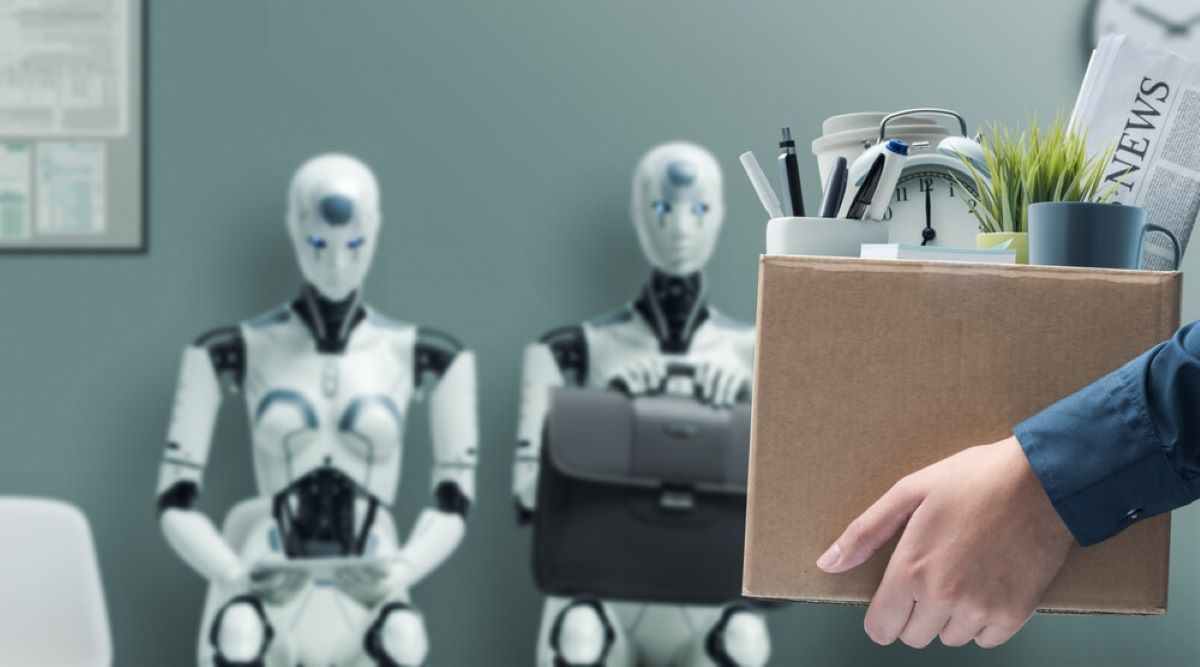According to a recent Goldman Sachs report, nearly 300 million full-time jobs could be automated and handled by AI globally.
A recently-released UAE survey showed that 55 percent of resident employees fear for their jobs due to the proliferation of AI and robots in the coming decade. The YouGov and duke+mir survey showed that people aged 25 or under worry more about AI and bots taking over their jobs.
The UAE has recently adopted a tech solution to complete employment contracts which AI now handles processing 35,000 applications in only 2 days.
Are employee fears justified?
Unskilled professions
The cases where this will be prominent can already be felt for manual repetitive tasks and entry-level positions like data entry.
Generative AI is in a position to destroy job opportunities for current and future junior employees by automating away the work they previously did.
A recent report found nearly 4,000 people lost their jobs because of AI in May.
Skilled professions
Is the AI revolution triggering job losses in skilled professions such as law, medicine, and finance? It is, said the Organisation for Economic Co-operation and Development (OECD), which added that the occupations at highest risk from AI-driven automation represented about 27% of employment across its 38 member countries, which include the UK, Japan, Germany, the US, Australia, and Canada.
Read: Navigating the future of jobs in the Gulf and beyond
The body said that for the time being AI was changing jobs rather than replacing them.
“Occupations in finance, medicine and legal activities which often require many years of education, and whose core functions rely on accumulated experience to reach decisions, may suddenly find themselves at risk of automation from AI,” said the OECD.
Workers in the fields of law, culture, science, engineering, and business within major economies were most exposed to AI-powered automation, the organization said, calling for an “urgent need to act” on AI.
The OECD emphasized on the dangers of AI having greater influence over hiring decisions and the risks associated with biased AI-driven decisions, where evidence of gender and racial bias and prejudice in AI-powered hiring processes reared its ugly head.

Where AI is not a threat
Thankfully, it’s not all bad news. AI isn’t capable of completing tasks that involve human qualities like emotional intelligence and creative thinking. Those skills could keep AI at bay.
Out-of-the-box ideas do not rely on formulaic work that automation tends to follow.
But not all creative skills are safe, as evidenced by graphic design and visual art-related AI creations by apps like MidJourney or others, which already is not all fun and games for serious artists.
Another area where AI may find a hard time replacing humans is when it comes to interpersonal skills and relationships. Can AI replace nurses caring for the elderly, or business consultants dealing with HNIs looking for strong eye contact and a confident demeanor? Jobs where one needs a deep understanding of people won’t budge for AI, at least not for the time being.
Finally, areas where easy mobility and dexterity requires problem-solving abilities in unpredictable environments, like electricians, plumbers, and other delicate blue-collar jobs appear immune to AI.
The task of money counting or tellers at a bank is not one of them.
AI is watching
UK Workers are very uncomfortable with digital surveillance at work,
most often powered by artificial intelligence (AI), according to a survey by union Prospect of over 1,100 technology workers found.
Employees were also vexed about important decisions made about their employment via algorithms.
Employers are using wearable tracking devices to monitor staff location, but 71 percent of workers said they would be uncomfortable with their employer using this technology.
69 percent of employees expressed unease towards employers’ use of cameras to monitor workers in the office and at home, with 69 percent saying they would be uncomfortable with it. 59 percent said that the practice of keystroke monitoring to assess how often and quickly people are working would not be welcome.
The survey also revealed that 62 percent of workers found it distressing when human resources (HR) used software to make recruitment and promotion decisions.
AI powers several surveillance practices which it uses to monitor workers with little transparency on the negative impact these have on mental well-being as workers feel constant, real-time micro-management and automated assessment.
For more tech stories, click here.








